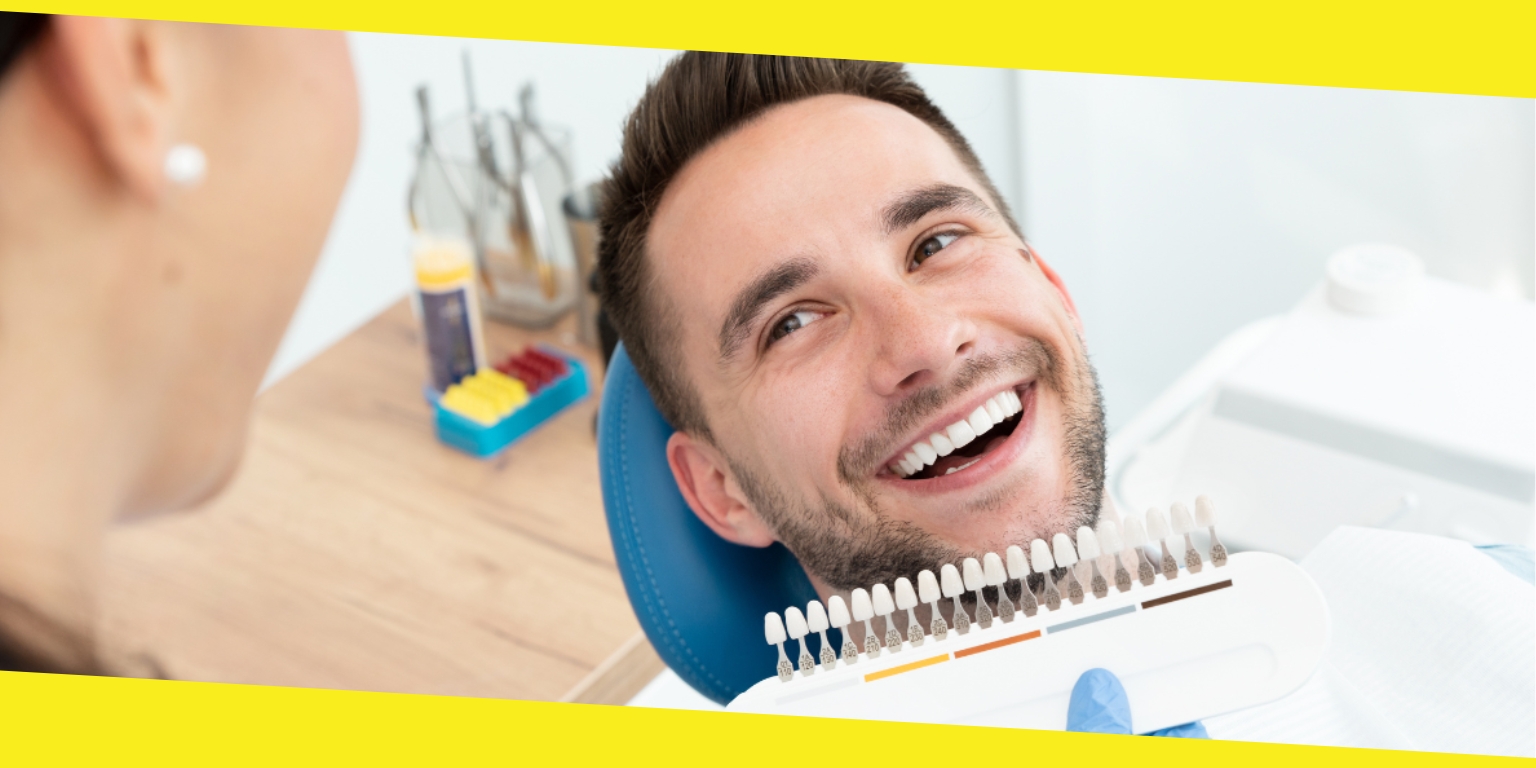Things To Avoid After Teeth Whitening

Teeth whitening is one of the best ways to improve your smile. You can do it yourself in the comfort of your home, or have a dentist whiten it for you professionally.
Professional teeth whitening can boost your self-confidence and a brighter smile. However, it’s not such an easy procedure where you apply a product and wait for results. You will need to put in a lot of work and effort since you can easily stain and discolor your teeth. Knowing what to do in the first 48 hours following a teeth whitening procedure will ensure lasting results.
Let’s learn more about teeth whitening and what you need to avoid after one.
What causes teeth discoloration?
Tooth discoloration occurs due to internal and external factors. You can stain your teeth by consuming things that are acidic or contain tannins and chromogens. These components can easily stick to enamel or weaken it, making it easier for stains to settle.
Teeth staining also happens due to taking certain medications or undergoing treatments. Aging also causes teeth discoloration since your enamel gets thinner with age. It exposes the darker-colored dentin — the layer underneath the enamel — giving your teeth a yellowish hue.
Poor dental hygiene also leads to teeth discoloration and staining.
Teeth Whitening: How Does It Work?
Most teeth-whitening products have highly reactive oxygen molecules that can break the bonds that make stains stick to your teeth’s enamel.
Some teeth whitening techniques are easy enough to do yourself, but some are safer and more effective if a dentist performs them. Some of these techniques are only performed by dentists.
You may experience temporary teeth sensitivity with some teeth whitening techniques. Dentists often add fluoride to tooth whiteners to keep your enamel strong and avoid sensitivity.
Teeth Whitening: What Not To Do
Here are some tips to help whiten your teeth effectively and produce lasting results.
-
Do not whiten your teeth too often.
It’s tempting to speed up the teeth whitening process, but you should remember that you must allow enough time between each treatment. According to a dentist in St. Pete Beach, whitening your teeth too often can cause sensitivity issues that overshadow its benefits.
-
Do not attempt to do it by yourself.
Many teeth whitening products, such as gels and strips, are available over-the-counter. They are convenient, easy to use, and contain between six and ten percent hydrogen peroxide. However, they only remove surface stains, making teeth for a brief time. Their results may also vary since you have to apply the product yourself.
In-office teeth whitening is the best choice for faster and more lasting results. In-office whitening products and techniques are more effective and may require special tools and lights. Dentists also have the knowledge and skills necessary to produce the best results.
-
Do not experiment with your whitening treatments.
It is impossible to customize your teeth whitening procedure. Dentists know what teeth whitening techniques best suit your needs.
Listen to your dentist’s recommendations to avoid discomfort and long-term sensitivity.
Foods To Avoid After Teeth Whitening
You should avoid foods and drinks that contain natural dyes or pigments. They can cause tooth discoloration. However, it doesn’t mean you should stop eating these foods.
Many dentists recommend avoiding certain foods and drinks for 48 hours because your teeth will be sensitive the first few days after teeth whitening.
Here are some foods you should avoid after whitening your teeth.
-
Colored Beverages
Teeth whitening aftercare includes avoiding strong-colored beverages such as coffee, tea, red wine, fruit juices, beer, and sodas. Their caffeine content and intense, artificial colors can stain your teeth.
Consider using a straw to prevent these beverages from coming in contact with your teeth if you can’t go about your day without a cup of coffee or a glass of wine.
You can drink milk, coconut milk, or white wine as an alternative.
-
Dark-colored Foods
There are many foods you should avoid following a teeth whitening treatment. These are:
- Dark-colored sauces (e.g., tomato sauce)
- Colored spices (e.g., paprika).
- Color-coated chocolates and candies
- Snacks with powdered cheese (e.g., cheddar cheese popcorn)
- Highly pigmented vegetables and fruits (e.g., blueberries)
-
Acidic Foods
Teeth whitening can temporarily make your enamel weaker. Consuming acidic foods right after can damage your enamel because they increase the acidity of your saliva.
Here are some foods you should avoid.
- Grapes
- Oranges
- Pineapple
- Cranberry
- Tomatoes
- Pickled foods
-
Tobacco
Tobacco product consumption doesn’t just make your teeth yellow; it also damages your oral health and affects your overall health. However, dentists understand that immediately stopping tobacco product consumption is difficult. Avoid using tobacco products for at least a few days following a teeth whitening procedure to avoid re-staining your teeth.
Key Takeaway
Teeth whitening is a safe, painless, and easy way to improve your smile. Of all teeth whitening techniques, In-office teeth whitening offers the best and fastest results.
You must take good care of your teeth following teeth whitening to ensure your results last. Avoid tobacco products and acidic and colored foods. You should also have it done by a dentist at their office. Follow their instructions and don’t try to do anything else. Don’t whiten your teeth too often; otherwise, you may damage your teeth.
Recommended For You
Types of Plastic Surgery
Most Inside
Most Inside offers high-quality recommendations and valuable updates to enhance all aspects of your life, providing premium guidance and enriching experiences.




